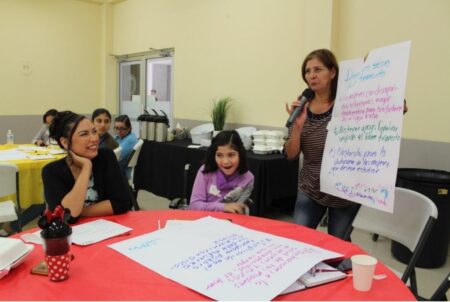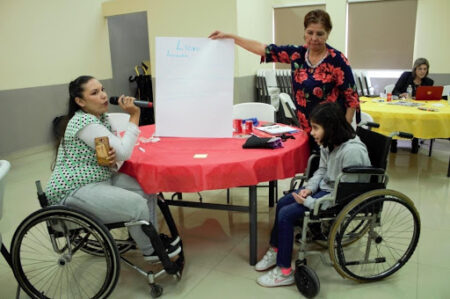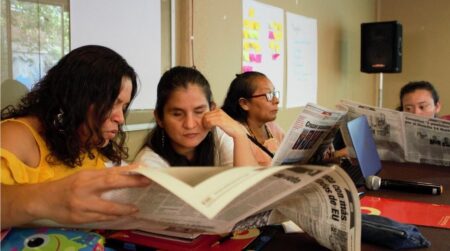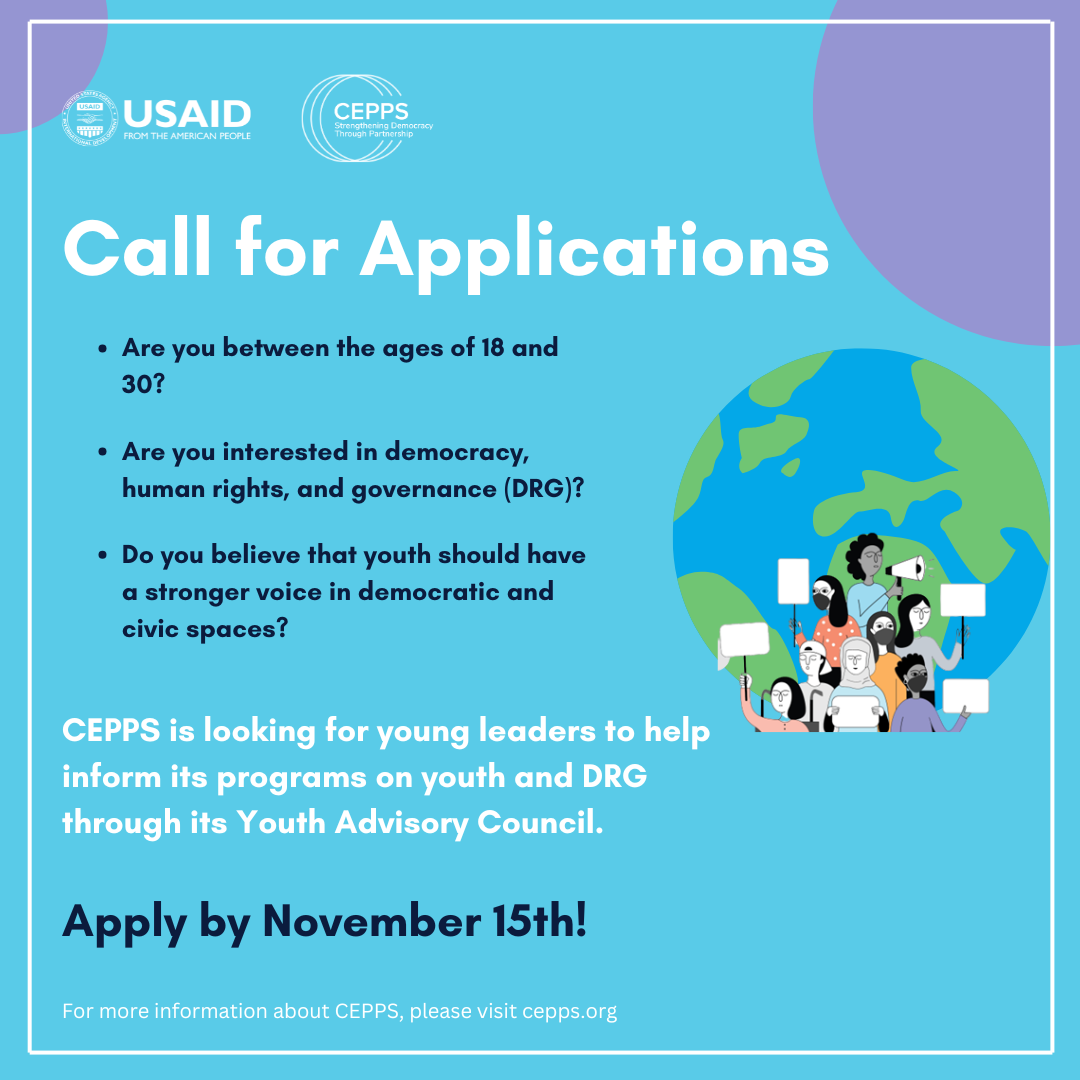Around the world, we work alongside local partners to boost their capacity to engage in a more inclusive democratic process. For example, CEPPS works with Documenta in Mexico to address the challenges persons with disabilities face in both political participation and day-to-day life.
Find Diana Sheinbaum’s spotlight video on YouTube Below!
My name is Diana Sheinbaum and I am the Disability and Justice Program Officer at Documenta. Documenta is a Mexican human rights non-governmental organization (NGO) founded in 2010 to address the challenges faced by vulnerable individuals, particularly persons with disabilities (PWDs).

People with disabilities (PWD) in Mexico lack equal opportunities in public life and face multiple forms of discrimination which limits their involvement in public affairs. These barriers are multidimensional and are not restricted to the political sphere, as they are present in all aspects of daily life.
First, there are structural barriers. Historically, PWD have been in the margins of society, with little access to education or employment. This has led to an increase in poverty and limited ability to live independently, increasing the likelihood of abuse and violence. More than 54% of PWD in Mexico live in poverty and two out of ten cannot read or write.
Second, there are legal barriers, particularly local legislation, that often denies people with disabilities the right to vote, to legal agency, and to get married and have a family, among other restrictions.
Third, there are institutional barriers, which include a lack of government entities focused on supporting the rights of PWD. In fact, the current [presidential] administration has dismantled the only agency with this responsibility, the National Council for the Development and Inclusion of Persons with Disability.
Another barrier is lack of accessibility, not only in terms of physical obstacles in public spaces, transportation, and administrative offices but also within the infrastructure of communications and information systems.
Finally, persistent stigma and prejudice toward PWD negatively impacts their opportunities to fully and meaningfully participate in public life.

Documenta works through strategies based on litigation, capacity building, research, and communication to advance the rights of PWD in Mexico. Through our work, we aim to challenge barriers faced by PWD and create spaces where their voices and experiences are amplified and honored.
Specifically, in partnership with the Consortium for Elections and Political Process Strengthening (CEPPS), Documenta has focused on increasing the participation and leadership of women with disabilities and their organizations. We’ve focused on strengthening their advocacy and communication skills to better ensure effective participation as key actors in the implementation of the Convention on the Rights of Persons with Disabilities (CRPD).
Documenta’s work has confirmed that neither women’s organizations nor organizations focusing on disability issues adequately address the specific problems that face women with disabilities. In response, we are working to create mechanisms that allow these women to strengthen their leadership presence in the public arena.
With CEPPS, we are encouraging the creation of a support network of women with disabilities across the country and creating platforms where they can participate. In partnership with women with disabilities and their organizations, Documenta designed and executed a broad communications campaign to share knowledge, experiences, testimonies and tools surrounding the importance of their public and political participation. This campaign included the production of several audiovisual materials, podcasts and a theater performance.

The Covid-19 pandemic has disproportionately affected PWD, particularly women with disabilities, who experienced exclusion, violence and discrimination long before the pandemic outbreak. The pandemic exacerbated inequalities and imposed further challenges to public and political participation. In order to overcome some of these challenges, Documenta worked on two main objectives: first, raising awareness on the effect of the public health emergency for women with disabilities; second, strengthening the digital accessibility of women with disabilities in media, academia, government and civic organizations.
Through this project, women with disabilities have found a safe space to share their common experiences of discrimination and violence, which strengthens their abilities to participate in public life and challenge the barriers that persist in society. The creation of this community of practice has even expanded beyond the project’s initial purpose. Because of the need to continue this project virtually, women with disabilities from across Latin America have joined this common effort. Other organizations have also amplified the messages created by women with disabilities in the campaign #NothingAboutUsWithoutUs.


